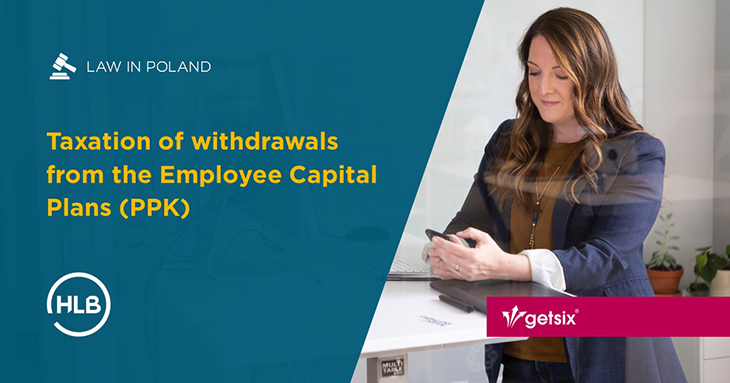Taxation of withdrawals from the Employee Capital Plans (PPK)
On January 18th, 2024, the Supreme Administrative Court (SAC) issued a landmark ruling (case number II FSK 435/21) on the principles of taxation of withdrawals from Employee Capital Plans (PPK).
Dispute over interpretation
The dispute arose from an interpretation request submitted by an investment fund planning to enter into PPK management and administration agreements with employers. The fund also plans to invest PPK participants’ funds in investment funds.
The applicant recalled that a separate PPK account is created for each participant, to which contributions are transferred from their own funds, from the employer, and additional welcome payments and annual bonuses from the Labour Fund. According to the PPK Act, a participant may request a refund at any time before reaching the age of 60.
In the event of income, the fund as the tax remitter must collect 19% personal income tax (PIT), however there is no certainty as to how to determine the costs when returning funds from PPK. The applicant was convinced that all contributions to PPK, both those made by the participant, the employer, and additional ones from the Labour Fund, would be recognized as costs.
The tax authorities initially disagreed with the interpretation, recognizing only the value of the participant’s PPK contributions as expenses. The fund appealed the decision and won in court. First, the Voivodeship Administrative Court in Warsaw supported his arguments, and then the Supreme Administrative Court confirmed the decision. The SAC found that the entire amount of funds accumulated in the PPK account constitutes income, and expenses can be related to tax concepts such as income, costs and profit.
The Court in addition noted that in the disputed situation, the entire amount of funds accumulated in the PPK account constitutes income. The wording used in Art. 30a sec. 15 of the PIT Act should be interpreted in the context of the concepts that make up the tax structure, such as income, costs and profit.
The Court also pointed out that the taxpayer earns income from employment in the amount of the equivalent of the employer’s contribution, which is subject to taxation and does not benefit from the exemption, and additionally receives income from annual bonuses and welcome payments, although the latter may be exempt from tax.
Therefore, from a tax perspective, the purchase of participation units in a fund is financed from the taxpayer’s income. Since the entire amount of the PPK refund constitutes income, the costs are both the participant’s direct contributions and the equivalent of the employer’s payments and the amount financed by the Labour Fund.
If you have any questions regarding this topic or if you are in need for any additional information – please do not hesitate to contact us:
CUSTOMER RELATIONSHIPS DEPARTMENT

ELŻBIETA
NARON-GROCHALSKA
Head of Customer Relationships
Department / Senior Manager
getsix® Group
***














